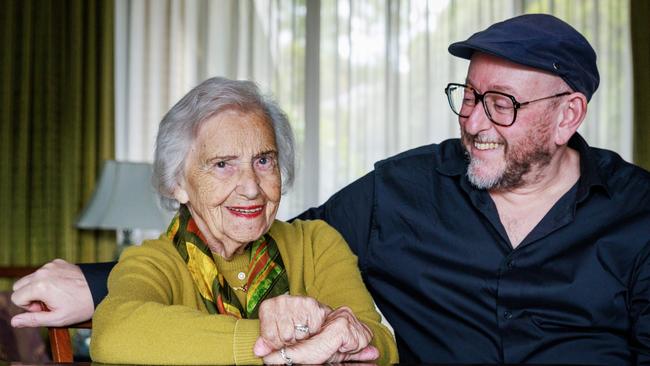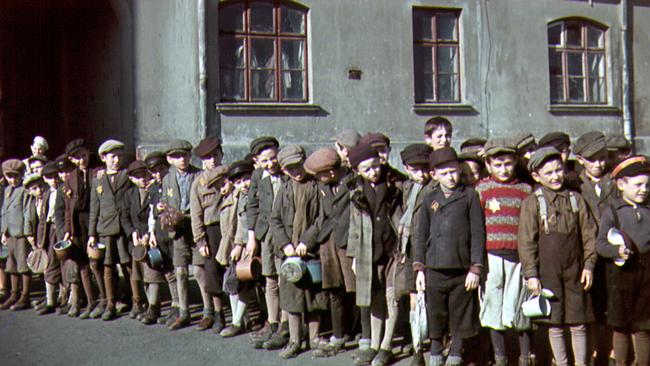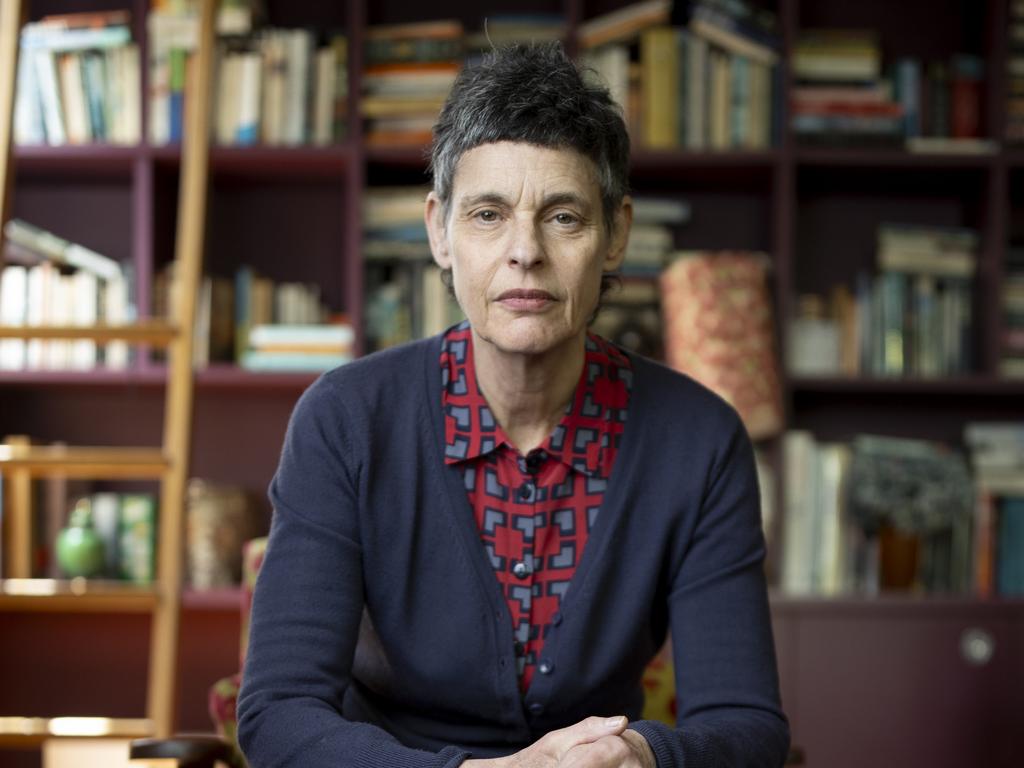The song that kept Guta Goldstein alive during the Holocaust
For Guta Goldstein, now 94 and a Polish-Australian Holocaust survivor, there were times in her childhood when music and singing were her only nourishment | HEAR HER SING
It is often said that music has the power to heal and nourish, but for Guta Goldstein there were times in her childhood when music and singing were her only nourishment.
The 94-year-old Polish-Australian Holocaust survivor spent from age nine to 14 in a ghetto and various concentration camps, frequently starved of food, and her dignity.
So she and her friends turned to song.
“We were singing because we were hungry, we were singing because we were sad, we were singing anytime. That was the only thing that made you happy,” Goldstein says.
“Songs and music were always on the menu – not food, but music.”
Today the warm and engaging nonagenarian lives in Melbourne, her home of 75 years.
Goldstein is speaking ahead of the world premiere of Singing up the Past, a 28-minute short film to be screened at the Jewish International Film Festival in Sydney and Melbourne next week.
A moving, uplifting film, it tells the story of Goldstein’s unusual ability to recall the songs from her childhood and internment, songs that would have been otherwise lost, accompanied by a score featuring those very songs, sung and recorded by the Lodz Children’s Choir.
Growing up in the Polish town of Lodz singing had always been part of Goldstein’s childhood.
“When I was little the radio just came in and we didn’t have one,” Goldstein says.
“Singing was the only entertainment we had and it was the most wonderful thing, my father had a beautiful voice, and he sang a lot.”
Goldstein’s mother died when she was seven and in 1939 following the outbreak of World War II Goldstein, her father and younger sister Munia were interned in the Lodz ghetto. Their father died not long after from pneumonia, leaving the sisters in a children’s home where Munia contracted measles and later died.
“It was a very sad situation. She was not quite eight years old and we didn’t have any parents, nobody was there and I was only 12 and couldn’t do much about anything,” Goldstein says.
She was sent to Auschwitz and later Bergen Belsen in Germany, before being moved to Mehltheuer. Miraculously she survived, always finding hope and a sense of humanity through song.
“Anyone who knew different songs, it didn’t matter what language somebody would sing it and we’d all learn it, whether it was Yiddish or Russian,” Goldstein says.
In 1945 the camp was liberated. Goldstein was 14, homeless and without any family aside from an older cousin who had been imprisoned with her.
They ended up in Florence as displaced persons, looked after by the Jewish-American Joint, a global Jewish humanitarian organisation and applied to all countries who offered to take Jewish people, including Brazil, Peru and Australia.
“After 4½ years Australia came good. It’s not that I chose it, but it chose me, it actually chose me,” Goldstein says.
It was 1949 and in Melbourne Goldstein met and married “a very, very nice man”, Ludwik “Lou” Goldstein, who was also Polish and had been liberated from Ebensee in Austria. The couple had two daughters, Jessica and Michelle before Lou died in 2003, from leukaemia.

It was also in Melbourne that she met Joseph Toltz, a scholar of the music of the Holocaust who was researching a doctorate for the University of Sydney, exploring musical experience and memory in Jewish Holocaust survivors.
One of his 150 global interviewees was Guta. When he heard her story he knew instinctively how important her story was, alongside the precious body of songs she alone knew and had somehow retained.
“At certain points in people’s lives when culture is really important they go back to it and it helps them think about their lives,” Toltz says.
“It’s therapeutic and takes you out of yourself so I wondered: what is the place of music in the lives of Holocaust survivors? Guta uses music to access her memories. Sometimes it makes her sad, but that’s not an unhealthy thing, she sings because she feels an obligation to remember.”
Although Goldstein had released two biographies, Toltz knew one of the most important aspects of her story was song. Compelled to capture that through film he approached his friend and filmmaker Tim Slade, an Australian director based in New York whose previous films had explored music. With Goldstein’s blessing the pair approached the Lodz Children’s Choir about performing the songs.

“I thought it would be much more resonant for the songs to go back to Poland and be sung by children,” Toltz says.
“None of them are Jewish but they’ve had this commitment to preserving Yiddish song and connecting to Jewish culture.”
Due to the pandemic, Goldstein was unable to travel but could teach the choir the songs, which she sings to this day, over zoom.
One scene in the film depicts Toltz wandering the graves of the ghetto fields in Lodz while the voice of Goldstein can be heard singing her sister’s favourite song.
A story of resilience and extraordinary empathy, Singing up the Past is a poignant and moving reminder about the power of the human spirit and the nurturing and healing capacity of music.
Today Goldstein has not only seven grandchildren but seven great-grandchildren. She knows she has much to be thankful for, but no one would begrudge her feeling hatred or anger towards her captors. That’s not the case.
“The people who thought up this unfortunate thing, they’re the people I don’t want to waste my time on. But there were some very nice people,” she says, recalling “Mr Lehmann”, the German ordinance worker at a camp factory Goldstein and another child regularly cleaned.
“One day he came out and whispered, ‘I have left my lunch for you in the rubbish tin. I’ll do that for you every day.’ And he did. I will never forget it. It was so nice of him.”
Goldstein believes it is important she tells her story and hopes the gentle way it’s conveyed using film, song and animation will resonate.
“It needs to be told, and if there’s an opportunity to tell it, one should. It’s not so much about me but considering I survived what I survived it should be told and especially for the people who died and had no chance to talk about it. I am the speaker for them, and for myself.”
Singing up the Past will screen in Sydney on November 12 and in Melbourne on November 14






To join the conversation, please log in. Don't have an account? Register
Join the conversation, you are commenting as Logout